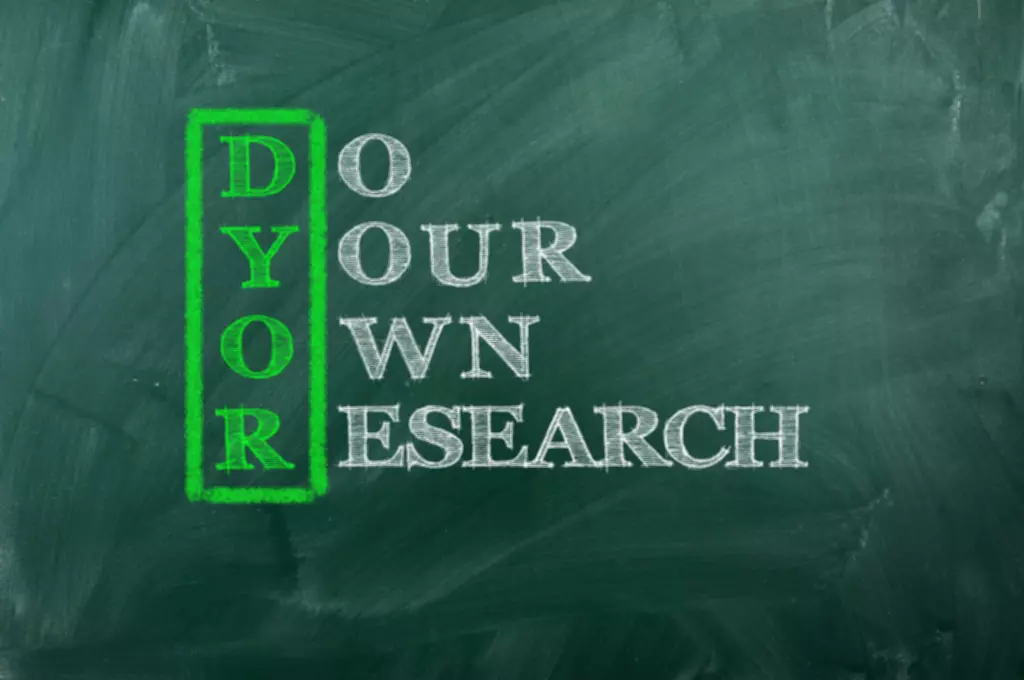Content
In this case, the fork resulted in a split creating Ethereum and Ethereum Classic chains. In 2014 the Nxt community was asked to consider a hard fork that would have led to a rollback of the blockchain records to mitigate the effects of a theft of 50 million NXT from a major cryptocurrency exchange. The hard fork proposal was rejected, and some of the funds were recovered after negotiations and ransom payment.

The technology at the heart of bitcoin and other virtual currencies, blockchain is an open, distributed ledger that can record transactions between two parties efficiently and in a verifiable and permanent way. Other blockchain designs include Hyperledger, a collaborative effort from the Linux Foundation to support blockchain-based distributed ledgers, with projects under this initiative including Hyperledger Burrow and Hyperledger Fabric . Another is Quorum, a permissionable private blockchain by JPMorgan Chase with private storage, used for contract applications. Precious commodities mining — Blockchain technology has been used for tracking the origins of gemstones and other precious commodities.
This technology also cuts out the middleman to help companies save money – and make more of it. Blockchain allows enterprises to validate and carry out safe transactions more directly. Theoretically, deals get done without lawyers, bankers, brokers, and other middlemen. And they get done in a more interactive way since data changes can be made by anyone in the chain, and then seesaw protocol audit viewed and validated by other participants. In May 2018, Gartner found that only 1% of CIOs indicated any kind of blockchain adoption within their organisations, and only 8% of CIOs were in the short-term “planning or active experimentation with blockchain”. For the year 2019 Gartner reported 5% of CIOs believed blockchain technology was a ‘game-changer’ for their business.
Public Blockchains
Thanks to reliability, transparency, traceability of records, and information immutability, blockchains facilitate collaboration in a way that differs both from the traditional use of contracts and from relational norms. Contrary to contracts, blockchains do not directly rely on the legal system to enforce agreements. In addition, contrary to the use of relational norms, blockchains do not require a trust or direct connections between collaborators.
In a distributed blockchain network, permissioned applicants can acquire virtual credentials, which provide an immutable record of their work history. Another historical event is when some of the well known financial institutions like the Bank of England and JP Morgan announced in 2015 that they would adopt an open source blockchain software called Hyperledger. The main principle of blockchain is its accessibility for everyone. Moreover, a private blockchain can be built on top of a public blockchain. The upshot is that if QC became an abrupt reality, cryptocurrency would be fixed fastest and first.
- Big Data information can be shared in a multi-verification environment that is perfect for real-time, secure information sharing.
- Smart contracts are often seen as a highly powerful application of blockchain technology.
- For many businesses across various industries, a key to success is a well-functioning, efficient supply chain.
- At this CFR virtual meeting, experts discuss the prospects for central bank digital currencies.
- No one computer controls the data and to change it in one block would mean the entire chain needs to follow suit.
- Due to the decentralised data stored on the blockchain, there’s no place left for hackers to access and corrupt the data.
A common belief has been that cryptocurrency is private and untraceable, thus leading many actors to use it for illegal purposes. This is changing and now specialised tech companies provide blockchain tracking services, making crypto exchanges, law-enforcement and banks more aware of what is happening with crypto funds and fiat-crypto exchanges. The development, some argue, has led criminals to prioritise the use of new cryptos such as Monero. The question is about the public accessibility of blockchain data and the personal privacy of the very same data.
The Future Of Blockchain
Global pharmaceutical companyBoehringer Ingelheimis using one such system to authenticate pharma products and help combat counterfeits. Blockchain is often referred to as a real-time, immutable record of transactions and ownership. Basically, it is a reliable, difficult-to-hack record of transactions – and of who owns what.
By the time of block completion, the included data becomes verifiable. In cryptocurrency, this is practically when the transaction takes place, so a shorter block time means faster transactions. The block time for Ethereum is set to between 14 and 15 seconds, while for bitcoin it is on average 10 minutes. Blockchains are typically managed by a peer-to-peer computer network for use as a public distributed ledger, where nodes collectively adhere to a consensus algorithm protocol to add and validate new transaction blocks.
Is Blockchain Technology the Future of Trade Finance? – CXOToday.com
Is Blockchain Technology the Future of Trade Finance?.
Posted: Fri, 23 Sep 2022 07:00:00 GMT [source]
This website is using a security service to protect itself from online attacks. There are several actions that could trigger this block including submitting a certain word or phrase, a SQL command or malformed data. “It’s good to see journals and articles being published on future skills such as blockchain. What he’d discover is that a large proportion of the global expertise relating to QC is already involved with crypto. Heck, there’s been a “Quantum Resistant” Coin/Ledger (that’s the name) for years on Coinmarketcap.
What Is defi?
As the industry matures, we expect that wealth managers will increasingly offer managed accounts with exposure to crypto assets in diversified portfolios. The promise of asset tokenization continues to attract asset managers. Over time, this could enable deconstruction of assets such as fixed income and ETFs into tokens with unique characteristics, and also enable securitization of real assets. Being clear about the respective value proposition that traditional finance and centralized crypto firms each bring to partnerships will be important. In the first, traditional firms bring relationships with institutional clients, while centralized crypto firms bring unique IP to solve crypto-specific challenges.

Wegner stated that “interoperability is the ability of two or more software components to cooperate despite differences in language, interface, and execution platform”. The objective of blockchain interoperability is therefore to support such cooperation among blockchain systems, despite those kinds of differences. By the early 2020s, there had not been a breakout success in video games using blockchain, as these games tend to focus on using blockchain for speculation instead of more traditional forms of gameplay, which offers limited appeal to most players. Such games also represent a high risk to investors as their revenues can be difficult to predict. Several major publishers, including Ubisoft, Electronic Arts, and Take Two Interactive, have stated that blockchain and NFT-based games are under serious consideration for their companies in the future. The game made headlines in December 2017 when one virtual pet sold for more than US$100,000.
Mainstream misgivings about working with a system that’s open for anyone to use. Many banks are partnering with companies building so-called private blockchains that mimic some aspects of Bitcoin’s architecture except they’re designed to be closed off and accessible only to chosen parties. That open and permission-less blockchains will ultimately prevail even in the banking sector simply because they’re more efficient.
The First Blockchain
By this, I mean a common knowledge and understanding of finance that has traditionally been confined to an elite economic class. But does quantum computing pose more or less of a threat to the legacy banking system relative to Bitcoin? Surely all encryption techniques using outdated technologies are going to be under fire. For instance, making up numbers, if banking cannot secure value in checking/savings accounts by 2030, but Bitcoin makes it into the 2040s , that puts a different spin on this issue.
In September 2021, the Treasury Department announced a crackdown on the use of cryptocurrencies in ransomware attacks, issuing its first sanctions on a crypto exchange. The dizzying rise of Bitcoin and other cryptocurrencies has created new challenges for governments and central banks. Banks and financial institutions – bitcoin’s original designated victims – started experimenting with their own private ledgers, in the hope that they could streamline the transfer of stocks and financial products. Public blockchains have many users and there are no controls over who can read, upload or delete the data and there are an unknown number of pseudonymous participants. In comparison, private blockchains also have multiple data sets, but there are controls in place over who can edit data and there are a known number of participants. Blocks hold batches of valid transactions that are hashed and encoded into a Merkle tree.
Technology
The valuation of other cryptocurrencies can be harder to explain; for instance, Dogecoin was created as a joke yet has surged in price, partly due to the support of some high-profile investors and entrepreneurs. The narrative that started spreading at some point in 2013 was that blockchain technology should be decoupled from bitcoin, and used for more than exchanging digital currency. Every sector could adopt a blockchain to move value or information among a multitude of parties, without the need for a mediator. In Australia, there are a number of utility companies using blockchain-enabled technology. Global energy-tech company GreenSync, in partnership with the Australian government, created a decentralized energy exchange . It acts as an online marketplace that facilitates payment to households and businesses with rooftop solar and battery storage systems, allowing other businesses to access their stored electricity and, ultimately, strengthen the grid.
In this free Massachusetts Institute of Technology class, SEC Chair Gary Gensler explores Bitcoin, blockchains, and money. China, which accounts for most of the world’s Bitcoin mining, has moved aggressively to crack down on cryptocurrencies. In September 2021, Chinese authorities announced a sweeping ban on all crypto transactions and mining, causing the price of some cryptocurrencies to fall sharply in the immediate aftermath. A handful of other countries, including Bolivia, Nigeria, and Russia, have also moved to limit the use of crypto, and others are considering restrictions.
Alternatively, to prevent a permanent split, a majority of nodes using the new software may return to the old rules, as was the case of bitcoin split on 12 March 2013. Furthermore, smart contracts for the contract or temporary workforce can be done through blockchain. Immutable contracts in HR can, for example, automatically release payments from escrow once workers complete assigned tasks, which smooths income for workers and cash flow for companies, according to Gartner.
It is especially important for developing countries and emerging markets with fast-growing economic potential — the regions with the most promising potential for mass crypto adoption. And while blockchain cannot solve all of society’s problems, it’s the community behind this industry that should address the factors causing financial exclusion. Being https://xcritical.com/ decentralized in its origins and driven by the community, the crypto industry indeed greatly prioritizes diversity and inclusion, including valuing the contributions of women and the LBGTQ+ community. The price of Bitcoin and other cryptocurrencies fluctuates wildly, and some experts say this limits their usefulness as a means of transaction.

After that, we had the invention of paper money, which became currency, and that was a new asset class. And then after a few more hundreds of years, the invention of stocks. Equity stocks in a company became the notion of ownership in the company, so stocks became an asset class. So, whether it’s government or corporate bonds, that’s another asset class.
Therefore, in terms of digital finance, China is in a leading position over the world. So, when quantum computers become reality, blockchain technology will have to be completely recreated from scratch or lose all its decentralization and security advantages. Tokens are digital assets built on the blockchains of other cryptocurrencies. Some experts say the potential for CBDC to cut out commercial banks as intermediaries carries risks, because these banks perform a critical economic role by creating and allocating credit (i.e., making loans).
Blocks
Crypto ownership is much more widespread in millennials, and they are asking their planners for advice on crypto as part of their portfolio, and potential tax implications. While there is debate within the bank on which use cases to pursue, there is a shared commitment to learn more about the space. Because of the disruptive nature of its solutions, Blockchain could be the answer. Organisations are discovering that managing an international team is challenging due to regulatory red tape.
Store Of Value: Digital Assets As An Investment Class
The potential applications of smart contract technology are essentially limitless and could extend to almost any field of business in which contract law would normally apply. Of course, while highly touted, smart contracts are not a magical substitute for old-fashioned diligence. In fact, the case of the Decentralized Autonomous Organization is a cautionary tale and a warning to investors to not assume that smart contracts are any better than the information and organization that a user puts into them. Nonetheless, smart contracts remain one of the most exciting ways that blockchain technology has already extended beyond the cryptocurrency space and into the broader business world. Blockchain technology has the potential to provide a much faster and cheaper alternative to traditional cross-border payments methods. Indeed, while typical money remittance costs might be as high as 20% of the transfer amount, blockchain may allow for costs just a fraction of that, as well as guaranteed and real-time transaction processing speeds.
Many professionals feel forced to be online to connect with co-workers in various time zones, even when they should be relaxing. To tackle this, Buffer has started employing Discourse, a technology that allows for asynchronous work schedules. The fact that anyone can run Ethereum or bitcoin software on his computer has opened the possibilities of innovation that we can’t think of right now. The Blockchain technology is beyond currency speculation and has a very promising future. But, unfortunately, there is no other well functioning app other than currency speculation.
Federal Reserve, are considering introducing their own digital currencies to compete with the crypto boom. A transaction that gets recorded on one computer or node is visible to each of the computers in the digital network. The information is then communicated to every other block in the chain.
